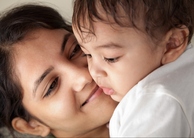The Impact of Parental Marital Status on Gender Ideology
By
2012, Vol. 4 No. 08 | pg. 1/2 | »
IN THIS ARTICLE
KEYWORDS
Even in the new millennium, divorce is a taboo subject. Society is inundated with statistics reporting high rates of divore, that divorce is ruining the lives of children, and that families cannot lead normal lives once parents get divorced. On the other hand, there are many young people being raised by two people who are not married to each other, but that does not necessarily mean that they are doing a bad job. Previous social science research has covered the effects of divorce, particularly on children. This paper examines how there might be a connection between the divorce of parents and gender ideology. Gender ideology, or attitude about how gender should be enacted, is a much explored topic within sociology. Gender ideology often dictates important life choices, such as choosing a career or having a family. For example, if you are a female with a traditional gender ideology, you would be likely to chose to get married and have a family earlier. You might not have a career. The ways that families negotiate gender ideology affect the way children grow up. If you come from a traditional household, you are taught a certain set of values that are different from the values that children from egalitarian families are taught. 
This paper asks if young adults with divorced parents have different gender ideologies than young adults with married parents. I hypothesize that if you have divorced parents, you would likely have a more egalitarian ideology because you have seen two single parents do the work of a household separately, as well as childcare and providing an income. I thought this might also create an environment of greater respect for the work that women do. I also predicted that most of the sample would report that they are egalitarian, because many people think that they are, even if they don’t always follow through with the actions. I hypothesized that young adults would want to model their parents. This is not to say that young adults with divorced parents would want to get divorced, but it would seem like a less scary option. If you know that your mom and dad were single parents, you would be more likely to think you could as well. I also thought that those with married parents would be more likely to want to model their parents’ relationship, because they have been married or together for a long time, and presumably have worked many things out. Literature ReviewThere is surprisingly little research on the connection between gender ideology and family structure, specifically divorced families. In my study, I compare the gender ideologies of young adults with divorced parents, and young adults with intact families. To study gender ideologies, one must first understand how attitudes are passed on between generations. Socialization theory is a popular explanation (Arditti, Godwin, & Scanzoni 1991; Fan, 2000; Lewis, 2007; Moen, Erikson & McClain, 1997; Starrels, 1992). For sociologists, symbolic interactionism is a significant perspective on socialization theory, where we, as actors, learn roles, such as gender, from the actions of others, also called “modeling.” Modeling parental behavior becomes a learning experience for children (Bohannon & Blanton, 1999; Cunningham, 2001; Lewis, 2007; Moen, Erikson & McClain, 1997; Starrels, 1992) . Children of divorce will spend time with their parents separately, allowing each parent to express their views, or creating behavior to model separately. Some say that the strongest of gender attitudes are formed during early childhood (Cunningham, 2001), but others say that verbal communication is most important in transmission of attitudes, regardless of perceived quality of parenting (Starrels, 1992). Still others sat that attitudes about gender are formed during the teen years when they begin thinking about marriage and family (Kapinus, 2004). My work evaluates the transmission of feelings about gender based on the lived experience of young adults. During the teen years, “Parents’ attitudes toward divorce seem to be more salient to offspring” (Kapinus, 2004, p. 130), suggesting that if a teen has divorced parents, they might see divorce as an option unlike their peers. Since the women’s liberation movement during the 1970’s, gender role attitudes of society in general have changed drastically (Bohannon & Blanton, 1999; Moen, Erikson & McClain, 1997). Mother's and daughter’s attitudes are more egalitarian, supporting women working rather than supporting an egalitarian division of labor. Other environmental and structural influences include education and job prestige (Cunningham, 2001), as well as race and culture (Fan, 2000). Increased educational opportunities are likely to give both men and women an egalitarian ideology (Fan, 2000). A college experience is likely to increase socialization between genders, but experiences in the classroom make them more egalitarian. Downward educational mobility increases likelihood of traditional attitudes (Moen, Erikson & McClain, 1997). Daughters without formal college education might seek someone to protect them financially. They would not have the same classroom experiences as their college educated peers. My work reflects this concept, since my sample was largely comprised of college students who had egalitarian views. The literature is divided on the importance of parental ideologies on a child’s ideology. Cunningham (2001) and Moen, Erickson and Mclain (1997) stress the importance of parental ideology, but Kiecolt (1988) and White (1981) felt just the opposite. Perhaps this has to do with when the studies were done, because Kiecolt and White used data from the GSS during the 1970's and 1980's, whereas Moen, et. al. and Cunningham used more recent data, which could have a dramatic effect. Moon (2011) says, “Married fathers and mothers evaluated the impact of divorce on their children more negatively than did divorced fathers and mothers” (p.347). The structure of the whole family and their norms affect gender ideologies. Fan (2000) stresses the importance of culture, particularly religion, in gender ideology. White (1981) and Kiecolt (1988) studied the effects of family structure. White (1982) defined this structure as mother’s employment, place of residence, the presence of an opposite sex sibling, and the number of siblings. There are few long term effects of family structure on gender ideologies. Men in families that were reconstructed (parents remarried) were virtually the same as men from intact families (Kiecolt, 1988). According to Trent and South (1992), the living arrangements of children are unimportant in comparison to other characteristics, like age sex and marital status. Married respondents were more likely to believe that children should stay with their natural parents. According to Arditti, Godwin, and Scanzoni (1991) perceptions of parenting quality are linked to gender role development, but actual parenting behaviors are not associated with it. This means that what the parents did mattered less than how their children interpreted it. For example, a young woman might interpret her parents asking her to vacuum the house, while her brother mows the lawn as her parents supporting traditional gender roles, whether or not they really do. “Perceptions of mothers' parenting were generally more strongly related to their daughters' gender role development than were perceptions of fathers' parenting” (Arditti, Godwin, & Scanzoni, 1991, p.209). Mothers may spend more time with their children, or demonstrate their ideologies in practice more frequently than fathers. One study suggested that the birth of children shifts gender roles of both sexes in a less egalitarian way (Fan, 2000). “The gender-role attitudes of young men may not shift at entry into marriage because the effect of normative expectations about gender-differentiated marital roles is offset by their marriage to young women who, on average, have more egalitarian gender-role attitudes than they do” (Fan, 2000, p.281). Miles and Seib (2010) found that college students with divorced parents were more likely to have weakened marital commitment, and more likely to think of divorce as a solution to marital problems that might occur, in comparison to their peers with intact families. This suggests that adult children of divorced parents might have more egalitarian gender ideologies, after seeing what really happens when two people get divorced, not just hearing second hand stories. Gender ideologies are transmitted between generations, which informs my work on the effect of parent’ marital status. This transmission occurs for a variety of reasons including modeling, education, and family. My research fills the gap in which gender ideology and divorce are connected.Continued on Next Page » Suggested Reading from Inquiries Journal
Inquiries Journal provides undergraduate and graduate students around the world a platform for the wide dissemination of academic work over a range of core disciplines. Representing the work of students from hundreds of institutions around the globe, Inquiries Journal's large database of academic articles is completely free. Learn more | Blog | Submit Latest in Sociology |


















